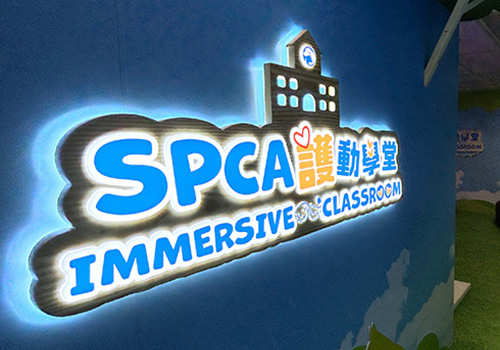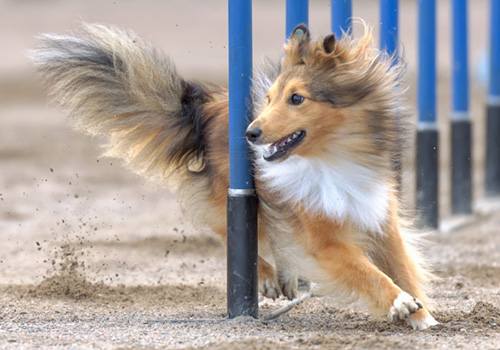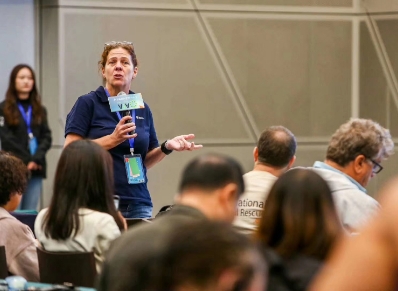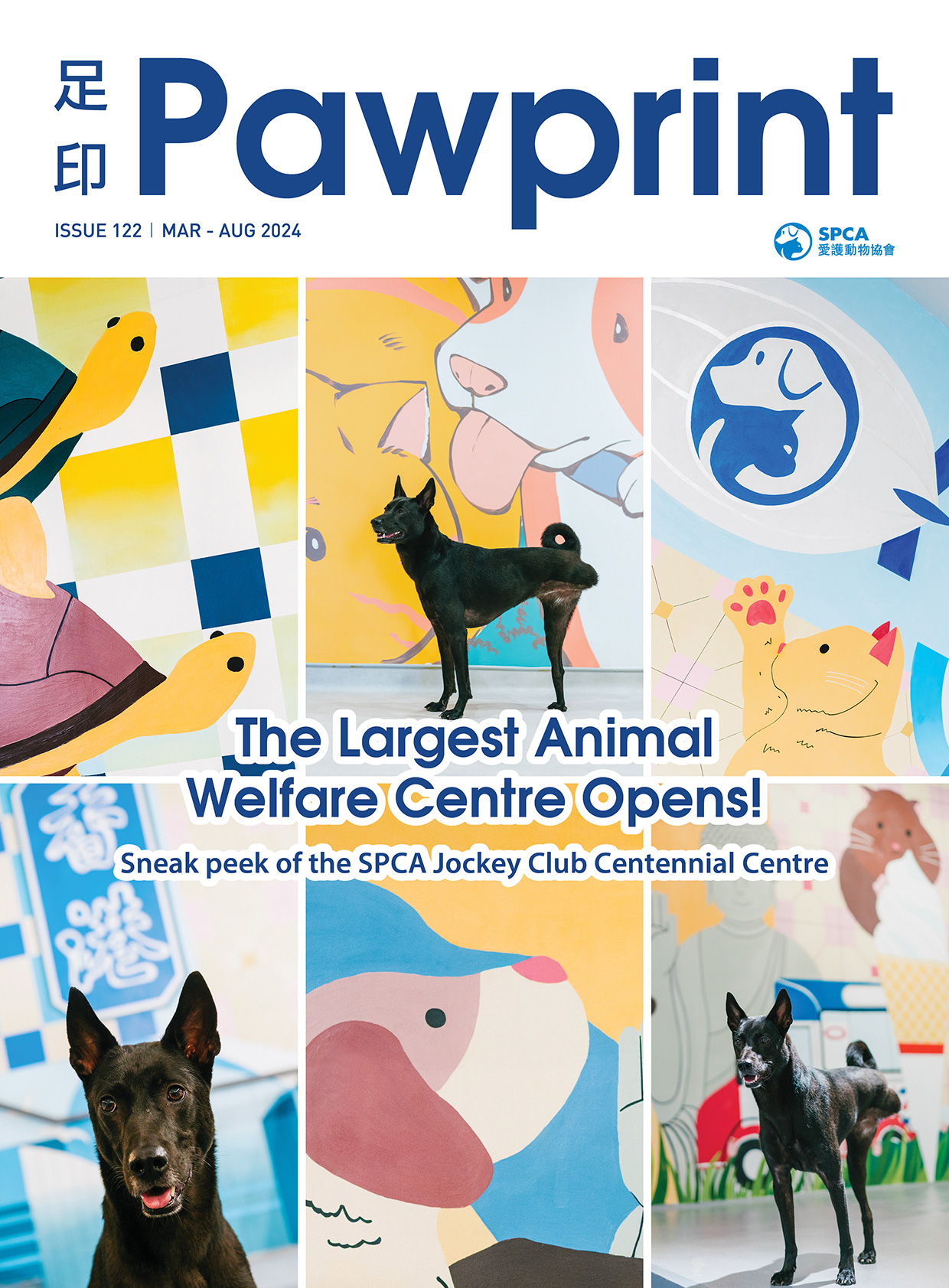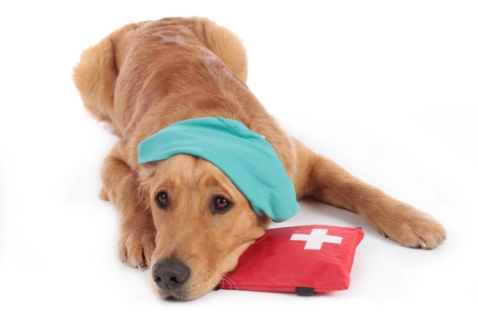(Hong Kong, 14 February, 2020) The Society for the Prevention of Cruelty to Animals (Hong Kong) (“SPCA (HK)” or “the Society”) and The Hong Kong Veterinary Association (“HKVA”), the renowned animal welfare charity and Hong Kong’s largest veterinary professional body, together with veterinary experts from City University offer advice to concerned pet owners in the light of the Covid-19 outbreak.
No evidence to show dogs and cats get sick from the novel coronavirus
Pet owners can be assured that there is no evidence that the novel coronavirus (Covid-19) can make dogs or cats sick, according to two experts in infectious diseases of cats and dogs from the Jockey Club College of Veterinary Medicine and Life Sciences at City University, Chair Professors Vanessa Barrs and Julia Beatty, together with veterinary surgeons from the Hong Kong Veterinary Association, Dr. Tom Mangan, and the SPCA, Drs. Jane Gray and Fiona Woodhouse. They have released the following statement:
Pet owners should continue to take normal precautions such as washing hands after handling pets. There are rumors of some owners abandoning their pets because of concern for human safety and such fears are misplaced. It is very important for owners to understand that there are no known risks of humans contracting Covid-19 from their pets.
The novel coronavirus is most likely a virus infection from bats that has adapted to infect humans and to spread from one infected human to another. This situation is similar to the SARS-coronavirus that emerged in 2003.
Previous experience with SARS suggests that cats and dogs who come into contact with the new virus will neither become ill nor transmit the virus to humans or other pets.
There are hundreds of different kinds of coronaviruses of humans and animals. Dogs and cats are most commonly infected by Group 1 coronaviruses rather than the Group 2 coronaviruses which were responsible for causing SARS and MERS, plus the novel coronavirus that has recently emerged in Wuhan.
Dr Tom Mangan, President of the HKVA said: “Coronaviruses of cats and dogs do not cause pneumonia and cannot cause infections in humans. There are many causes of fever, sneezing and coughing among cats and dogs. If your cat or dog is unwell, please seek the advice of your local veterinary surgeon.”
Many pet owners may query some of the measures introduced by the Hong Kong Government in light of the fact that there is no evidence of pets being involved in the current coronavirus outbreak. Professor Vanessa Barrs, Chair Professor of Companion Animal Health and Disease at City University’s Department of Infectious Diseases and Public Health explained the need for compliance with government recommendations and guidelines “Measures such as quarantining some pets in light of what is currently known about Covid-19 may seem unnecessary, but at this stage in an evolving disease situation it is vital that people comply. Although there is currently no evidence that animals can get infected or become sick from Covid-19, disease surveillance in potentially exposed pets through health monitoring and testing is necessary to confirm this and should help to allay any fears”
The Hong Kong SPCA appealed to owners not to make any hasty knee-jerk reactions regarding their pets and to listen to advice from health and veterinary professionals. Dr. Fiona Woodhouse, Deputy Director of Welfare said “Owning a pet is a life commitment. Please do not abandon your companion animals just because of unsubstantiated rumours.”
In view of the widespread outbreak of a novel coronavirus (Covid-19) in China and concern over local cases in Hong Kong, the SPCA, HKVA and experts from City University’s JCC of Veterinary Medicine and Life Sciences would like to share the following information and tips with all pet owners:
1. According to the World Health Organisation (WHO), at present there is no evidence that companion animals such as dogs and cats can be infected with the virus. However, pet owners should always practice good personal hygiene and wash hands with soap and water (or alcohol-based hand sanitiser) after handling animals to avoid exposure to zoonotic diseases.
2. Personal hygiene is a basic infection control measure to prevent the spread of ANY disease, as such we recommend that all people including pet owners follow relevant WHO general guidelines:
- Frequently clean hands using alcohol-based hand sanitiser or soap and water (for at least 20 seconds);
- When coughing and/or sneezing cover the mouth and nose with a flexed elbow or paper tissue – immediately throw the tissue away and wash hands;
- Avoid close contact with anyone who has a fever and/or cough;
- If you have a fever, cough and/or difficulty breathing seek medical advice immediately and share previous travel history with your health care provider;
- Avoid visiting live markets in areas currently experiencing cases of novel coronavirus, but if you do, avoid direct unprotected contact with live animals and surfaces in contact with animals;
- The consumption of raw or undercooked animal products should be avoided. Raw meat, milk or animal organs should be handled with care, to avoid cross-contamination with uncooked foods, as per good food safety practices.
3. To protect family members and pets, if a pet owner is unwell, we recommend that he or she should wear a mask, observe strict hygiene practices and consult with a medical professional as soon as possible.
4. Rumours about the novel coronavirus are widespread. Please note that companion animals do not need to wear a face mask to be protected against Covid-19. If you are concerned or notice a change in your pet’s health, please seek your veterinary surgeon's advice.
5. Veterinary clinics remain operational during this period. Please ensure that you make an appointment prior to bringing your animal for veterinary consultation, and practice good hygiene during your visit.
6. If you as a pet owner are confirmed to be infected with the virus or if you are placed at a government quarantine centre due to being a close contact of an infected person you should follow health authorities’ instructions on the handling of your pets. AFCD will make arrangements for quarantine and monitoring of the pets if deemed necessary. Current Department of Health protocols in health quarantine facilities focus on human health and biosecurity and as such do not allow animals.
7. If you are under “home quarantine” you should be able to care for your pets normally (there will likely be restrictions on you taking your animals out of the premises). If your pet becomes sick please contact your usual veterinary surgeon for advice and explain your background. It should be possible for a friend or relative to help to take your pet to the vet if needed but extra precautions may need to be taken and special arrangements may need to be made. Your vet will advise on any such measures they may require.
8. If you are assisting a friend to look after an animal because they are out of town or indisposed for whatever reason please make sure that you:
- Have comprehensive instructions on how to take care of the animal and follow them closely
- Have the contact information of the pet’s regular veterinary clinic
- Stay in close contact with the owners and let them know if there are any issues
- Ensure the premises are escape proof and safe so that accidents do not happen. Pay particular attention to windows, keep them closed unless securely screened, as open windows can present a significant risk to cats.

